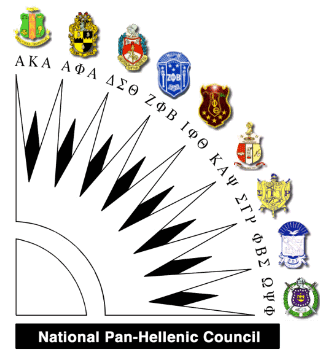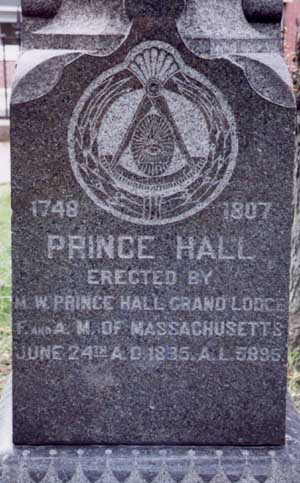THIS BLOG POST IS DEDICATED TO MY MATERNAL AND PATERNAL GRANDFATHERS, SIDNEY GARNER AND
ARNOLD L. MARTIN, SR., RESPECTIVELY, WHO WERE BOTH FREEMASONS.
To spend time with others, who share a
common interest, gives us a sense of belonging.
Even if we enjoy our own company, we tend to be drawn to others in order
to experience anything from intellectual and physical stimulation, to spiritual
enlightenment, to emotional support – even to endangerment.
Throughout the month, I will introduce
various, African-American social clubs, professional Associations and
Pan-Hellenic organizations.
The first historically-Black fraternal
organization was the Prince Hall Freemasonry and dates back to the late 18th
century. Other fraternities followed suit, such as Sigma Pi Phi, which is
non-collegiate and is also known as The Boulé, established in 1904; as well as the
first, African-American collegiate one, Alpha Phi Alpha, formally established
as a fraternity in 1906, at Cornell University. The earliest sororities include
Alpha Kappa Alpha, established in 1908 at HBCU, Howard University; and Delta
Sigma Theta, founded in 1913, also at Howard University, and celebrating its centennial this year. More on these and
other Pan-Hellenic groups, later in the month. African-American
fraternal organizations were formed with an emphasis on public service and
civil rights.
Prior to The American
Revolution, an African-American abolitionist, named Prince Hall, and fourteen
other free Black men petitioned for the admittance to the exclusively-White
Boston St. John’s Lodge of the Freemasons.
 |
| Prince Hall |
To set the context, Freemasonry is a fraternal organization that arose from obscure origins in the late 16th to early
17th century. Freemasonry now exists in various forms all over the world, with
a membership estimated at around six million, including approximately 150,000
under the jurisdictions of the Grand
Lodge of Scotland and Grand Lodge of Ireland, over 250,000
under the jurisdiction of the United
Grand Lodge of England, and just
under two million in the United
States.
The origins and early development of Freemasonry
are a matter of some debate and conjecture. A poem, known as the Regius
Manuscript, has been dated to approximately 1390 and is the oldest known Masonic
text. The poem begins with a history of the "Craft" of
Masonry, describing Euclid as the inventor of geometry and then tracing the spread of the art
of geometry through "divers lands", ending up in England.
The first Grand Lodge, the Grand Lodge of London
and Westminster (later called the Grand
Lodge of England (GLE)), was
founded on 24 June 1717, when four existing London Lodges met for a joint dinner. Eventually, there
were mergers with other Lodges to form the United
Grand Lodge of England (UGLE) in
1813.
 |
| United Grand Lodge of England |
Freemasonry was exported to the British Colonies
in North America by the 1730s . The earliest known
American Lodges were in Pennsylvania. Early American Freemasons included
Benjamin Franklin and George Washington.
 |
| George Washington as a Freemason |
While Freemasonry has often been called a "secret society", Freemasons themselves argue that it is more correct
to say that it is an esoteric society, in that certain aspects are private. The
most common phrasing is that Freemasonry has, in the 21st century, become less
a secret society and more of a "society with secrets". Despite the organisation's great
diversity, Freemasonry's central preoccupations remain charitable work within a
local or wider community, moral uprightness as well as the development and
maintenance of fraternal friendship.
Some examples of Masonic charities include:
·
Sheltered housing and medical care
·
Education with both educational grants or schools such
as the Royal Masonic School (UK),
which are open to all and not limited to the families of Freemasons
·
Shiners Hospitals for Children
Prince Hall was born in
Barbados, in 1735. He became enslaved to the tanner, William Hall, at age
eleven, in Boston. As a slave, he learned to read and learned the value of a
good education. By 1770, Prince was a free man, living in Boston.
Many
historians consider Prince Hall as one of the more
prominent African-American leaders throughout the early period of the United
States. In addition to efforts to help
end slavery, Prince also tirelessly lobbied for education rights for Black
children even operating a school in his own home, after being denied the funds
by Massachusetts Congress to start a school for Black children.
During The American Revolution, Prince petitioned for Blacks to be able to fight for
the Colonies. He was denied. However, A proclamation from England guaranteed Blacks that if they enlisted in the British Army, instead of the Continental Army, they would be freed at the end of the war. Only after the British Army began to
use Blacks in their troops did the Continental Army change its decision to
block admission of Blacks into the military.
 |
| Black British Soldier in The American Revolution |
After
the war ended, many African-Americans
who served in the ranks or as aids during the war expected equality from the White men whom they had stood next to
against the British. Prince Hall soon emerged in the high-profile realm of
politics and was instrumental in proposing several pieces of legislation that
would improve the lives of African- Americans throughout New England. However,
the situation soon became apparent that the African-American place in society
had not really advanced, throughout the duration of the war. In addition to
proposing legislation, Hall also hosted a variety of different events for
African-Americans, including theater events as well as educational forums.
Freemasonry was extremely
attractive to free Black men of the eighteenth century. Prince Hall and his
followers saw the Masonic fraternity as a platform where racial differences
seemingly did not exist. The Masonic ideals greatly appealed to Prince,
especially the beliefs in liberty, equality and peace.
However, they were turned
away, when they applied to St.John's Lodge in Boston. Some White Freemasons were irate at the audacity of
Blacks applying. Due to the resistance
of colonial Masonries, Prince looked elsewhere; and on March 6, 1775, he and
fifteen other free Blacks were initiated into the Masonry by members of the
Lodge No. 441 of the Grand Lodge of Ireland, a military lodge attached to the
38th Foot (renamed The 1st Staffordshire Regiment in 1782). The Lodge was
attached to the British forces stationed in Boston. Prince and the other freedmen
founded African Lodge No. 1, with Prince Hall named as Grand Master. They were
not universally accepted by other Lodges, though, as seen in the letter of General Albert Pike to his
brother in 1875, where he says, “ I am not inclined to mettle in the matter. I
took my obligations to White men, not to Negroes. When I have to accept Negroes
as brothers or leave Masonry, I shall leave it.”
 |
| General Albert Pike |
When the
British Army left Boston in 1776, the Black Masons had limited power. It took
nine years of petitioning White American Lodges before they appealed to the
less prejudiced lodges in England. They applied to the Grand Lodge of England
for a warrant March 2, 1784. Eventually,
the Grand Master of the Mother Grand Lodge of England, H. R. H. The Duke of
Cumberland, issued a charter for the African Lodge No. 1 later renamed African
Lodge no. 459 September 20, 1784. African Lodge was so popular, and Prince Hall
was such an excellent leader, that the Grand Lodge of England made him a
Provincial Grand Master on January 27, 1791.
 |
| Duke of Cumberland |
Prince Hall died on December 4, 1807 and is buried
in the Historic, Copp’s Hill Burying Ground, in Boston. His gravestone reads: Here lies
ye body of Prince Hall, first Grand Master of the colored Grand Lodge in Mass.
Died Dec. 7, 1807. A tribute monument was erected in Copp's Hill on
June 24, 1835, in his name next to his grave marker.
Prince Hall's legacy
lives. Today, predominantly black Prince Hall Grand Lodges exist in the United
States, Canada, the Caribbean and Liberia,
governing Prince Hall Lodges throughout the world.
From the marbled corridors in
Washington DC, to the executive suites of corporate America, to the boardrooms
of community-based organizations, Prince Hall Freemasons are playing a major
role in all society. With a passionate and powerful voice they are articulating
the needs and desires of African-Americans in every stratum of American life.
Some important, living and deceased Prince Hall
Freemasons include:
Arnold L. Martin Jr. (my father), Rev. Jesse L.
Jackson (Civil Rights leader)), Ossie Davis (actor), Al Green (singer),
Benjamin Hooks (former Executive Director of the NAACP), Maynard Jackson
(former Mayor of Atlanta), Don King (Boxing promoter); Rev. Al Sharpton (news
pundit and Civil Rights leader); Scottie Pippen and Shaquille O’Neal (former NBA
players); Douglass Wilder (first African-American Governor (Virginia));
Andrew Young (former Mayor of Atlanta, Civil Rights Leader and
philanthropist); Julian Bond (former NAACP Chairman); W.E.B. DuBois
(educator, author & historian); John H. Johnson (founder of EBONY
magazine); Thurgood Marshall (US Supreme Court
Justice); Count Basie, Duke Ellington, Lionel Hampton and Nat King Cole (musicians, conductors & composers)
If you’ve got a spare 14 minutes, click
here to watch this excellent documentary on the Prince Hall Freemasons, produced by
Georgetown University students and winner of the Best Picture Award at the
2007 Georgetown University Film Festival.
Sources:
Wikipedia, Google Images, Freemasonry.org, YouTube
|

















No comments:
Post a Comment